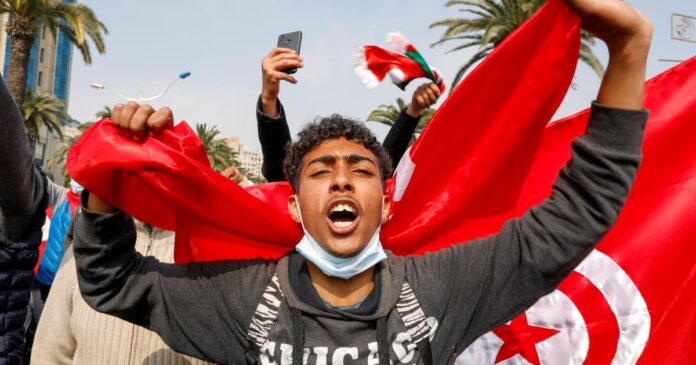Author: Sarah E. Yerkes
Affiliation: Carnegie Endowment for International Peace
Organization /Publisher: Foreign Affairs
Date/Place: August 6, 2021/USA
Type of Literature: Article
Word Count: 1463
Link: https://www.foreignaffairs.com/articles/tunisia/2021-08-06/tunisia-model-crisis
Keywords: Tunisia, Authoritarian, Democracy
Brief:
The author argues that Tunisia’s democracy is facing its greatest challenge that may also return the country to its authoritarian past. She discusses President Kais Saied’s recent hijacking of the democratic process by freezing the parliament and consolidating executive power into his own hands in what is alarming for the future of the country. The attacks on Al Jazeera’s media offices and the detention of New York Times reporter Vivian Yee were troubling signs. The author considers some possible scenarios that could play out in the coming days. 1. Saied will appoint a new prime minister and unfreeze the parliament within the 30-day period called for by the constitution, returning Tunisia’s institutions to their prior functions. Saied has floated the idea of a constitutional referendum and a new electoral law that would permanently consolidate executive power in the hands of the president, either fully eliminating the parliament or greatly diminishing its power. Either of these scenarios would make Saied’s emergency declaration a temporary speed bump on Tunisia’s road toward democratic consolidation. 2. The vicious political and social polarization might begin to clash with each other, and the military that has managed to maintain a largely apolitical posture may intervene. The civil society organization is playing an important role in the political sphere, as it did previously; even now, many of the same civil society actors have once again joined forces to develop yet another road map, which they plan to share with the Tunisian public as well as the president. The author suggests that this road map should return Tunisia to its democratic path by allowing the elected parliamentarians to serve out their terms and providing for adequate checks on Saied’s power. But it should also outline concrete steps to address Tunisia’s endemic corruption and acknowledge the deep mistrust the Tunisian people feel for their government. An inclusive and concrete plan could open a path to a negotiated exit from Saied’s emergency measures, and represents Tunisia’s best hope for preserving its young democracy.
By: Razia Wadood, CIGA Senior Research Associate




